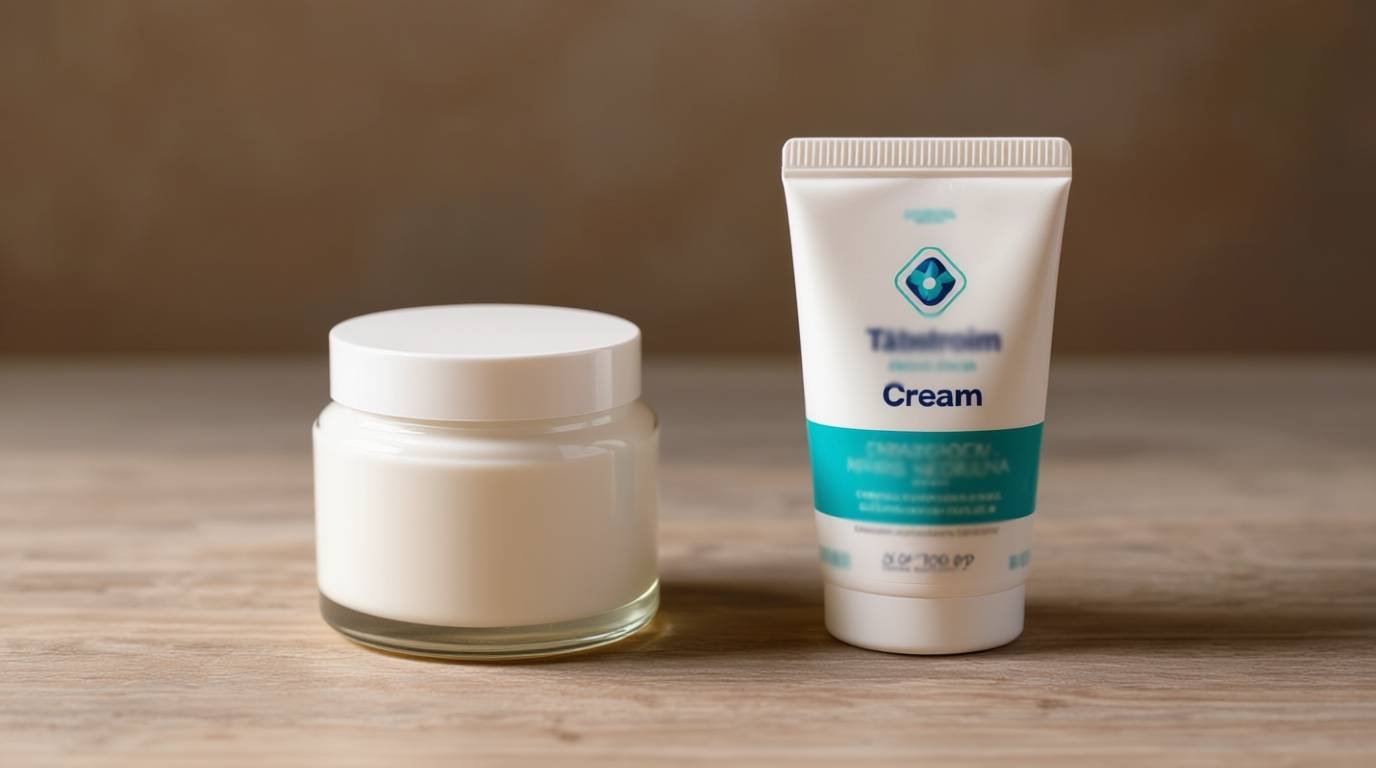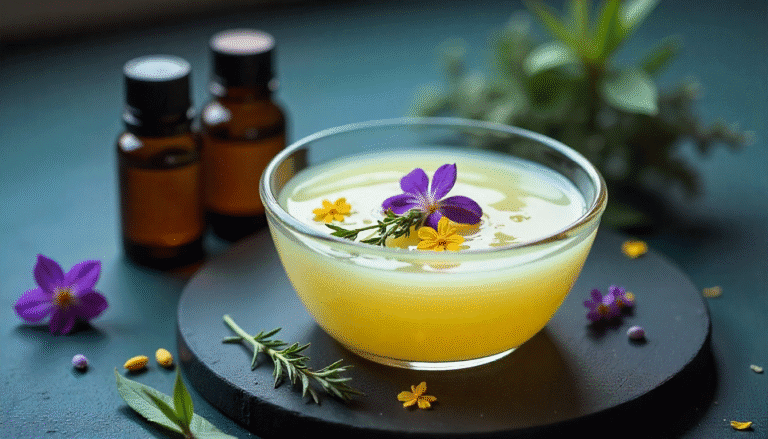Introduction to Tallow Face Cream and Conventional Moisturizers
Tallow face cream, a natural moisturizer derived from rendered animal fat, has garnered significant attention as a skincare option, particularly for individuals with dry and sensitive skin. Tallow is rich in fatty acids that closely mimic the natural oils found in human skin. This similarity allows for better skin absorption and nourishment, making it an appealing choice for those seeking to restore moisture and enhance skin barrier function. Typically sourced from grass-fed animals, the quality of fat used in tallow face creams can vary, influencing both the product’s texture and effectiveness.
In contrast, conventional moisturizers are often formulated with a diverse range of chemical additives and synthetic ingredients. These products frequently include humectants, emollients, and occlusives to achieve moisture retention. Common chemical additives found in conventional moisturizers may include parabens, synthetic fragrances, and artificial dyes, which can be potential irritants for sensitive skin. While such moisturizers may provide immediate hydration, their long-term efficacy raises concerns, particularly for those with compromised skin barriers.
The growing trend of natural skincare has prompted many consumers to reconsider conventional moisturizers in favor of more holistic options like tallow face cream. With increasing awareness about the ingredients in skincare products, users are becoming more discerning, seeking formulations that are free from potentially harmful substances. This shift underscores the importance of understanding the differences between natural and synthetic ingredients, especially for individuals who experience adverse reactions to conventional products.
As we delve deeper into the comparison of tallow face cream and conventional moisturizers, the focus will be on their respective benefits and drawbacks, particularly through the lens of efficacy for dry and sensitive skin types. This exploration will help clarify the advantages of natural options over their synthetic counterparts.
Benefits of Tallow Face Cream for Dry and Sensitive Skin
Tallow face cream has emerged as a noteworthy alternative to conventional moisturizers, particularly for individuals with dry and sensitive skin. One of the primary advantages of tallow is its composition, which closely mirrors the natural oils found in human skin. This similarity allows for better absorption, making it an effective emollient that helps to maintain the skin’s moisture barrier.
The rich content of vitamins and nutrients in tallow contributes significantly to its effectiveness. Tallow is high in vitamins A, D, E, and K, which are crucial for skin health. Vitamin A plays a vital role in cell turnover and regeneration, while vitamins D and E provide anti-inflammatory properties that can soothe irritated skin. These nutrients work synergistically to enhance the skin’s texture, promoting a softer and more supple appearance.
Additionally, tallow face cream has demonstrated its ability to provide hydration without causing irritation, a common concern for individuals with sensitive skin. Unlike many conventional moisturizers that contain synthetic ingredients or fragrances, tallow is free from harsh chemicals, reducing the risk of adverse reactions. Users have reported significant improvements in skin comfort and hydration levels after switching to tallow-based products. Numerous testimonial accounts highlight experiences where switching to tallow led to a decrease in redness, scaling, and dryness, showing that the natural formulation caters well to delicate skin types.
Scientific studies have begun to support the claims surrounding tallow’s beneficial effects. Research indicates that animal fats, such as tallow, possess properties that can enhance skin hydration and overall health. In experiments, participants using tallow exhibited measurable improvements in skin moisture and elasticity, verifying its status as an effective natural moisturizer. Overall, the combination of natural compatibility, nutrient richness, and reduced irritation makes tallow face cream a superior choice for those struggling with dry and sensitive skin.
Drawbacks of Conventional Moisturizers
Conventional moisturizers, while widely popular, often come with notable drawbacks that can impact skin health. Many of these products contain synthetic chemicals, which may lead to adverse reactions, particularly for individuals with sensitive skin. Common ingredients, such as parabens, phthalates, and artificial fragrances, can cause skin irritation, redness, and irritation. For those with preexisting skin conditions like eczema or rosacea, the use of these products can exacerbate symptoms and lead to further discomfort.
Additionally, allergic reactions are another considerable risk associated with conventional moisturizing creams. Some individuals may find themselves suddenly developing sensitivities to ingredients that were previously tolerated, causing rashes or uncomfortable itching. Unfortunately, the lack of stringent regulations surrounding cosmetic formulations means that consumers may unknowingly expose themselves to potentially harmful substances. This unpredictability raises concerns about long-term skin health, as consistent exposure to these chemicals may contribute to cumulative negative effects.
Moreover, conventional moisturizers can sometimes leave a heavy residue on the skin, creating a sense of suffocation rather than true hydration. This is especially problematic for those with dry or sensitive skin types, who require formulations that provide genuine nourishment and moisture retention. Instead of improving the skin barrier, these products often rely on occlusives that temporarily mask dryness, failing to deliver beneficial nutrients necessary for repair and rejuvenation.
In contrast, natural alternatives like tallow face cream can effectively nourish and hydrate the skin without the risks associated with synthetic ingredients. The compatibility of natural components with our skin’s physiological structure leads to healthier, more resilient skin. Transitioning away from conventional moisturizers may not only enhance skin health but also reduce the potential for irritation and adverse reactions over time.
Choosing the Right Moisturizer for Your Skin Type
When it comes to selecting the appropriate moisturizer, understanding your skin type is paramount. Different skin types have unique characteristics that require specific ingredients for optimal hydration and nourishment. For instance, individuals with dry skin often experience flakiness, tightness, and a dull complexion. If you find yourself dealing with these issues, look for moisturizers that contain hydrating ingredients such as hyaluronic acid, glycerin, or natural oils. On the other hand, those with oily or combination skin may notice excess shine and enlarged pores. In such cases, lightweight, non-comedogenic formulas are beneficial, as they hydrate the skin without clogging pores.
Recognizing signs of sensitive skin is also crucial. Symptoms such as redness, burning sensation, or irritation indicate that the skin barrier may be compromised. It is advisable to opt for moisturizers that feature soothing components like aloe vera, chamomile, or calendula. Furthermore, when selecting a product, the importance of reading ingredient labels cannot be overstated. Be cautious of synthetic additives, fragrances, and preservatives, which may exacerbate skin sensitivity and irritation. Aim for products that highlight natural, nourishing ingredients to promote skin health.
Integrating natural products, such as tallow face cream, into your skincare routine can be an effective strategy for those looking to transition from conventional products. Tallow, a rendered form of beef fat, is rich in vitamins A, D, E, and K and can closely mimic the natural oils produced by our skin, thus enhancing moisture retention. When considering a switch to natural moisturizers, start gradually. Introduce one product at a time and observe how your skin responds. This approach allows for a smoother transition and helps identify any allergens or irritants effectively.



